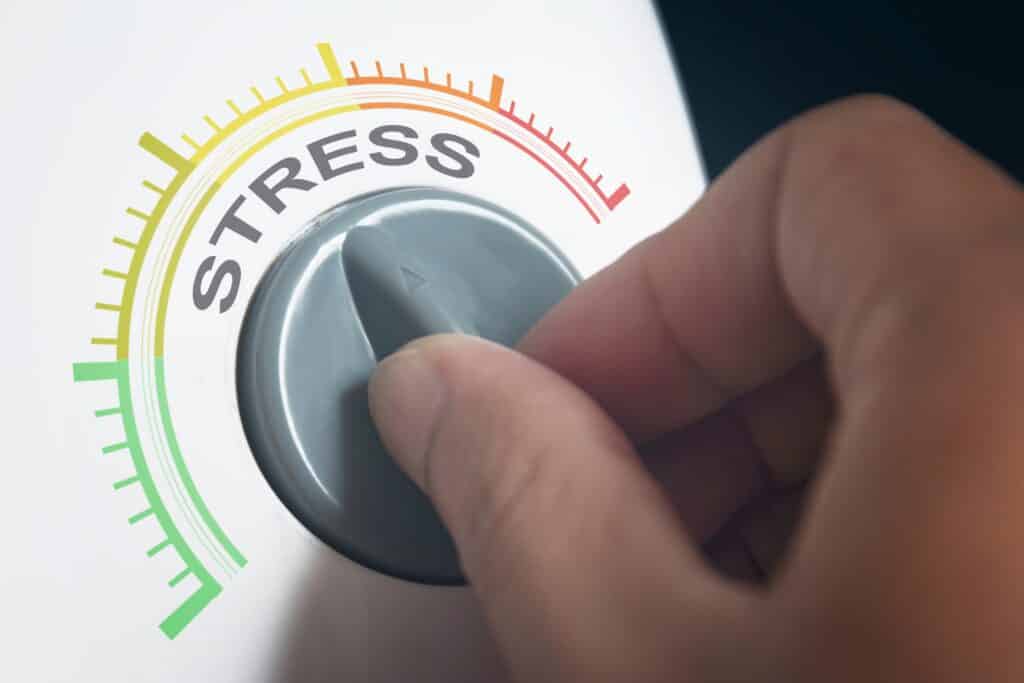By Margaret Elle Wiggins, Ph.D.
Stress and anxiety are common reactions to challenges that come up throughout our lives. However, when stress is experienced frequently or for extended periods of time, it can start to negatively impact our physical and mental health. Cortisol is a hormone that is released when the body experiences stress. In normal or small amounts, this release of cortisol can be helpful as it can allow you to react appropriately in stressful situations; however, if stress becomes chronic, the ongoing release of cortisol can have impacts on brain function.
For example, cortisol can impact the hippocampus, one of the brain structures that has a well-established role in learning and memory. Persistent, chronic stress and/or anxiety can impact the brain’s efficiency with learning and recalling information. When we are chronically feeling anxious or stressed, much of our attention is being allocated to helping us alleviate some of that stress. The result is that we have less attentional capacity to use in our daily lives. Can you think of a time in your life that was particularly stressful? If so, you may also recall this as being a time when you found it more challenging to pay attention to things or you found yourself to be generally more forgetful.
Importantly, chronic stress and anxiety not only impact our cognitive health. They also impact our mental health and overall well-being. Over time, chronic stress can contribute to multiple mental health conditions including depression and anxiety disorders. These types of conditions can also exacerbate any pre-existing problems in our cognitive functioning. As such, it is important that we manage stress in the short term to protect ourselves over the long term and so we can live more active, full lives.
Stress Management Strategies
It is not realistic to think that we can fully eliminate stress or anxiety. However, there are many effective coping skills that can help reduce the negative impacts of stress and anxiety. Incorporating some of these coping strategies into your daily routine can help promote greater well-being.
1. Mindfulness and Meditation
Mindfulness practices, such as meditation and grounding exercises, can help reduce stress by allowing us to focus on the present moment as opposed to thinking about various worries. Research has shown that repeated engagement in mindfulness-based exercise can help improve focus, reduce unnecessary stress, and can help with feeling more emotionally stable. Some quick and easy mindfulness practices can involve focusing on your breath for a few minutes daily or using various guided medications that can be found on apps. Techniques like box breathing (e.g., inhale through your nose for 4 counts, hold for 4 counts, exhale through your mouth for 4 counts, hold for 4 counts, and repeat focusing on the pattern of your breath throughout) or progressive muscle relaxation (tensing and then relaxing specific muscles) can also help you relax and lower stress.
Some potential meditation apps that you may enjoy include Calm and Insight Timer. There are also great videos for free through YouTube to teach strategies such as Progressive Muscle Relaxation. An example is below:
https://www.youtube.com/watch?v=1nZEdqcGVzo
2. Physical Activity
Exercise is not only great for your physical health, but it is also an excellent mental health coping strategy. You do not have to engage in strenuous exercise to experience benefits for your mental health. Even light to moderate physical activity such as walking, yoga, and swimming can make you feel better and lower your stress. When you engage in exercise, your brain releases endorphins which are one of our body’s ways of making us naturally feel good. Furthermore, exercise helps promote quality sleep, improves overall cardiovascular health, and increases our energy, all of which may help us feel less stressed and overwhelmed throughout our day.
3. Social Engagement
Socializing with family, friends, or community groups is another effective way to reduce stress. Spending time with loved ones can provide emotional support when you are struggling, can help you feel connected, and can be a productive distraction when we are navigating challenging situations. Even if your loved ones do not live nearby, regular phone calls or video chats can still provide these benefits. You may also consider joining local social groups where you can interact with new people and share experiences that you find fulfilling. If you are struggling with where to start, MeetUp is a great online platform you can use to search for various interest groups near you (https://www.meetup.com/).
4. Healthy Lifestyle Choices
Stress and anxiety can be linked to various modifiable lifestyle factors including sleep, nutrition, and hydration.
Maintaining a healthy diet can help keep us energized throughout the day. When we are tired, we can become more susceptible to the impacts of stress and anxiety. Furthermore, a balanced diet supports brain health and can help reduce bodily inflammation, which is linked to stress. However, please speak to your physician before implementing any dietary changes. Hydration is also important, as being dehydrated can make us more susceptible to feeling anxious and irritable, both directly and indirectly (such as from dehydration headaches).
Having a restful night’s sleep is also important for stress management. Chronic stress and anxiety can keep us up at night with racing thoughts. This can lead to fatigue and potential napping during the day, resulting in another restless night’s sleep. As such, a cycle of poor sleep habits can develop. Ensuring that you get enough quality sleep each night can help improve emotional well-being. We used to believe that 8 hours of sleep per night was the gold standard, but this has been disproven. Instead, sleep need is based on the individual. What is most important is that you feel rested upon awakening. There are various sleep hygiene strategies you can engage in to improve sleep. Some examples of such strategies can be found at: https://www.sleepfoundation.org/sleep-hygiene
5. Engagement in Hobbies
Engaging in hobbies and activities that bring you joy can be a productive way to distract you from things that are causing stress and anxiety. Whether it is finding an outdoor spot to read your favorite book or sitting on the couch snuggling your pet, activities that bring happiness allow us to put our attention on something fulfilling rather than ruminating on the stressful parts of our lives.
6. Seek Professional Help When Needed
If stress or anxiety feels overwhelming or like it is becoming too much to manage, it may be helpful to talk to a dedicated healthcare professional. There are many types of therapeutic techniques, ranging from talk therapy to skill-based approaches. Skill-based therapies such as Cognitive Behavioral Therapy (CBT) are shown by research to be effective for managing anxiety and stress by teaching you to recognize maladaptive thought patterns and replace them with a more balanced/adaptive perspective. Talking with a mental health counselor can also provide you with additional coping strategies based on your individual needs and life circumstances.
By adopting these stress management techniques, you can help reduce the various negative impacts of stress on your brain and your body, in turn improving your overall well-being.

